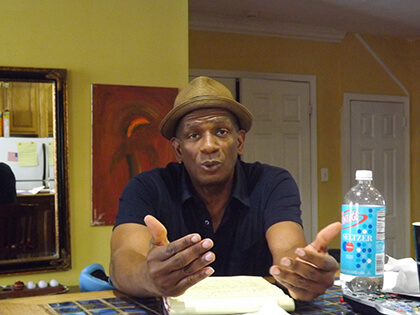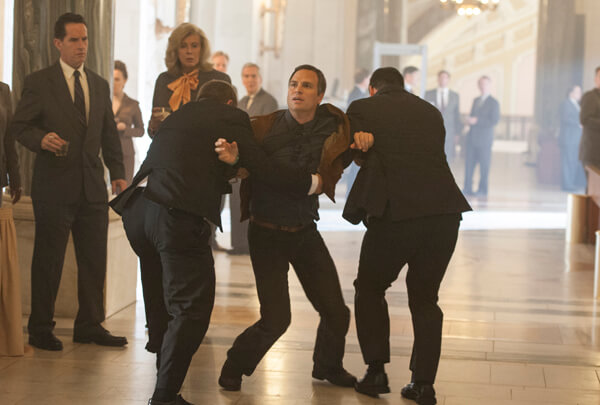Members of ACT UP on July 17 protest the hurdles a gay man encountered getting PEP treatment at the Mt. Sinai emergency room. | GAY CITY NEWS
Members of ACT UP protested outside of Mt. Sinai Medical Center after a gay man who had recently had unsafe sex visited the emergency department there and had difficulty getting a regimen of anti-HIV drugs that can prevent infection with the virus.
“These people are not given care,” said Jim Eigo, a member the AIDS activist group, during the July 17 protest at the Upper East Side hospital. “It’s such a wasted opportunity.”
On July 5, the man arrived at a Mt. Sinai clinic after having unsafe sex. With the clinic closed for the holiday weekend, he was referred to the hospital’s emergency department where he was told that there is no such thing as post-exposure prophylaxis (PEP). The man was asked to leave the hospital. The man had initially called ACT UP, which referred him to Mt. Sinai.
AIDS activists see wider problem in lack of awareness, promotion of pre-, post-HIV exposure interventions
When he was refused PEP, an ACT UP member contacted a relative who is a senior medical staffer at the hospital, who intervened, and the man was given PEP. In a July 17 statement that the hospital issued in response to the ACT UP protest, the man thanked Mt. Sinai and said, “At the ER after the initial confusion over talking to the right person –– at one point I may have spoken to a janitor on accident –– I was checked in, I was given the medicine within 20 minutes, and then referred to the clinic so I think they will handle my costs without a problem.”
Mt. Sinai, which has a contract with the city health department to deliver PEP, is clearly sensitive about the incident. In addition to the patient, the hospital issued statements from Gay Men’s Health Crisis and the city health department that praised Mt. Sinai.
PEP has been used for over 20 years to treat healthcare providers who may have been exposed to HIV, typically by a needle stick. The 28-day course of anti-HIV drugs must begin within 72 hours of the exposure, though the closer to the exposure the better.
PEP began informally in the US among healthcare workers. The US Public Health Service issued its first guidelines on using PEP for occupational exposure in 1996. The federal Centers for Disease Control and Prevention (CDC) issued its first guidance for non-occupational exposures in 2005. The New York State health department issued PEP guidelines on non-occupational exposures in 2004.
ACT UP has compiled a log of six examples, ranging from 2009 to the July 5 incident at Mt. Sinai, in which people were either denied PEP or encountered obstacles to getting PEP at six New York City hospitals. Four of the six occurred in late 2012 or 2013.
“When I have six different incidents at six different hospitals over the last four years, something is wrong,” Eigo said.
That this well-established intervention should encounter any obstacles to its delivery is a comment on the state of HIV prevention in New York City. Government and AIDS groups have not promoted PEP and it is probable that most New York City gay men are unaware of the intervention.
A 2011 study published in the journal Sexually Transmitted Infections found that just 201, or 36 percent, of 554 men who were interviewed in two New York City bathhouses were aware of PEP or pre-exposure prophylaxis (PrEP), the process of taking anti-HIV drugs on an ongoing basis to prevent infection.
When Gay City News contacted the city’s 311 system in April, that system had no information about PEP. On July 17, an operator advised that a caller should visit a healthcare provider or emergency room “immediately” to get PEP, though the emergency system does not list the emergency departments or clinics that are funded by the city or state to deliver PEP.

































